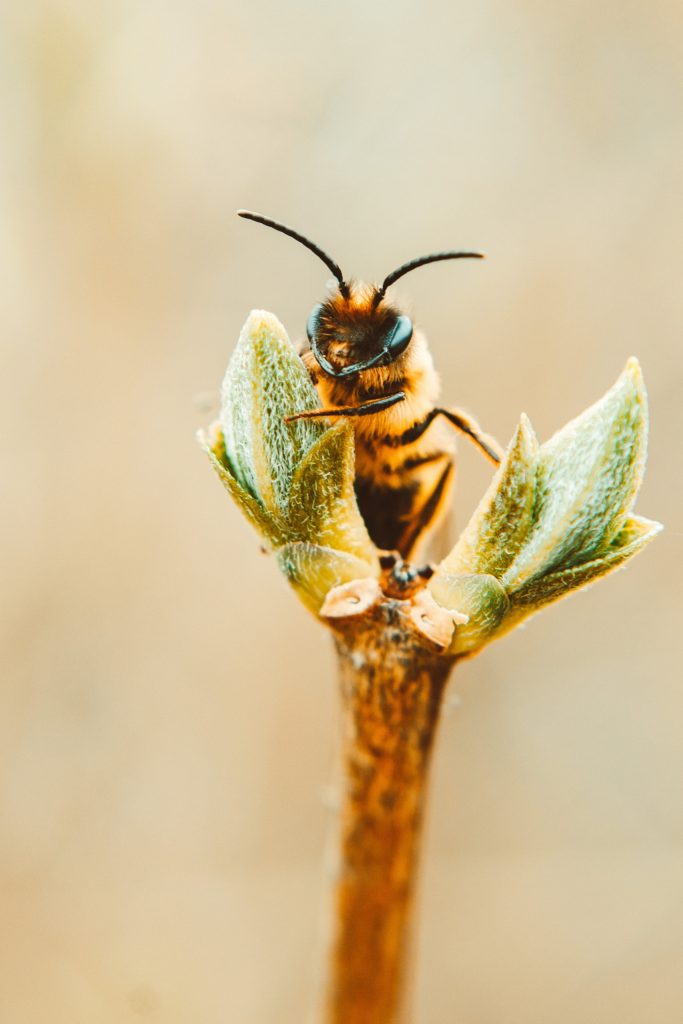Sweet, sticky, golden honey. Honey has endless uses; it sweetens our tea, soothes sore throats, moisturizes our skin, and is the only foodstuff that never, ever goes bad. Sure, it may crystallize in the jar, but a soak in some warm water will fix that. Not only is honey extremely versatile, but it also has impressive health benefits. Let’s take a look at what nature’s sweetest gift has to offer us.

The History of Honey
Bees produce honey by collecting nectar from flowers and then regurgitating that nectar. As the water evaporates from the nectar, what we know as honey is left behind. Honey has been around for thousands of years. The oldest surviving record of honey dates back to 2100 BC in Sumerian and Babylonian cuneiform tablets. Honey is mentioned in sacred texts in India and Egypt.
Honey was so coveted and valuable that is was sometimes used as currency and was frequently offered up to the gods as an offering. It was also used in things like furniture polishes and varnishes and for medicinal purposes.
As long as honey is stored in a lidded vessel and no water is added, it will never spoil. The oldest jar of honey to be found to date was discovered in ceramic jars inside the tomb of a noblewoman outside of Tbilisi, Georgia. The honey was 5,500 years old.
The Benefits of Honey
If humans have been using a substance for thousands of years, there must be many benefits to it, right? Definitely!
Honey Contains Antioxidants
We usually associate antioxidants with vegetables and fruits, but honey contains them as well. Antioxidants help protect our bodies from the damage caused by free radicals. This damage contributes to the aging process and may contribute to chronic diseases like cancer and heart disease. The antioxidants compounds in raw honey are polyphenols and may help protect us from these and other conditions.
Honey is Antibacterial and Antifungal
Some types of honey can kill bacteria and fungus as it naturally contains hydrogen peroxide. In fact, Manuka honey has been shown to be effective in killing antimicrobial-resistant bacteria by 39% compared to 29% for antibiotics in cystic fibrosis research. Another study showed that Manuka honey may help prevent bacteria colonies from growing in medical equipment, particularly catheters. It has also been shown to kill very dangerous bacteria strains like MRSA and MSSA. There were nearly 120,000 MRSA infections and 20,000 associated deaths in the United States in 2017. Given its antibacterial and antifungal properties, it’s unsurprising that honey can also help heal wounds, burns, and ulcers.
Honey is a Cough Suppressant
A study showed that children aged 1 to 5 suffering from upper respiratory tract infections who were given two teaspoons of honey at bedtime reduced nighttime coughing and improved their sleep.
The honey remedy seems to be as or more effective as a cough suppressant than OTC cough remedies containing the cough-suppressing ingredient dextromethorphan.
Honey Can Improve Sleep
Honey causes a small spike in insulin levels and releases tryptophan in our brains. Tryptophan is converted to serotonin, which then converts to melatonin. Melatonin is a hormone that helps to regulate our sleep-wake cycles.
Honey Can Decrease Allergy Symptoms
Locally produced honey may contain pollen spores from local plants. Consuming this honey can act similarly to a vaccine; you’re ingesting a small amount of the allergen, which allows your body to fight against it and build up a resistance to it when encountered in larger quantities.
Honey Can Improve Cholesterol Levels
Honey has been shown to reduce LDL cholesterol, the “bad” cholesterol, while significantly raising HDL cholesterol, the “good” cholesterol.
Honey Can Help With Weight Control
When used as a replacement for sugar, honey can activate appetite-suppressing hormones.
Honey is Fuel for Athletes
When you’re on a long run, hike, or bike ride, don’t reach for artificial sports gels; reach for honey! Honey has been shown to perform on par with glucose, which is the sugar most of those commercial gels use.
Honey is the perfect fuel before, during, or after your workout.
Honey Can Improve Gut Health
Lots of us understand how important probiotics are for gut (and overall health), but we may not be as familiar with prebiotics. Prebiotics are the food source for the healthy bacteria in your gut. Prebiotics feed those bacteria and allow them to flourish.
Raw honey contains natural prebiotics to feed your good bugs!

Not All Honey is the Same
There are more than 300 different varieties of honey in the United States. Each has its own unique color and flavor determined by the types of blossoms the bees that made the honey visited. Single varietal honey like Manuka is so designated because the bee producers only gather nectar from one type of plant. Manuka honey is made in Australia and New Zealand by bees that only gather nectar from the manuka bush, a bush native to those countries. Another distinction is that between raw honey and regular honey. Raw honey is not processed in any way. The honey is harvested by the honeycombs in the beehive and strained to remove things like bits of beeswax and dead bees. The honey is then bottled and sold. That’s it! Nothing is added or subtracted. Honey, being commercially produced on a large scale, like the honey you might see in plastic bear-shaped bottles on grocery store shelves, goes through many more stops before being
poured into those cute bottles. The honey may be pasteurized and filtered. Pasteurization destroys yeast naturally found in honey through high heat. This gives the honey a longer shelf life and makes the texture smoother. Filtering removes things like beeswax and dead bees and described above, but the commercial filtering also removes air bubbles, so the honey looks clear and not “cloudy” as raw honey appears. These processes can remove the beneficial compounds in raw honey like antioxidants and local pollen. And then there is the possibility of adultered honey. In 2018 a study found that 27% of commercial honey brands were watered down with sugar cane, corn syrup, or other products in
a money-saving scheme by producers. There is a simple test to find out if your honey has been adulterated. Put a spoonful of honey into a glass of water. Adulterated honey will dissolve while pure honey will settle at the bottom of the glass in lumps. The safest bet is to buy honey from a local, small-batch producer.

Cautions for Honey
If you aren’t allergic to bee pollen, raw honey is safe to consume. But infants under the age of 1 should not be fed honey, raw or regular due to the risk of infant botulism. Honey is safe for children older than 1 year.

Here’s To Honey!
Honey has many wonderful health benefits, but it does have a high sugar content and is calorie-dense. So enjoy honey and reap the benefits but do so in moderation.
